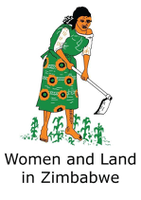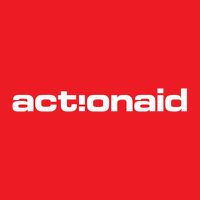END OF PHASE EVALUATION TERMS OF REFERENCE : PPL – TORCHES Project
Job Description
Summary
ActionAid Zimbabwe is seeking the services of a Zimbabwe-based consultant to carry out a comprehensive end of phase evaluation for the Peoples Post Code Lottery (PPL) funded project entitled Towards Resilient Communities with Health, Equality, and Safety for all (TORCHES). The primary task of the consultant will be to gather end of phase data against relevant indicators in the project logical framework.
Background
ActionAid is an international charity organisation that works with women and girls living in poverty. ActionAid Zimbabwe’s dedicated local staff are helping to end violence against women and girls and changing lives, for good. Poverty is complex, it is more than a lack of money. It is also a lack of choice and power. For women and girls, poverty means having fewer opportunities than men and boys, in the world’s poorest places this means living on the margins of society, often facing discrimination, exploitation and violence. The denial of women and girls’ rights is one of the biggest causes of poverty worldwide, and a grave injustice. That is why we put the rights of women and girls at the heart of all we do.
Objective of the project
The Torches project is aimed at creating communities where women and girls, including people with disabilities, are free from violence and have amplified voices and agency. This will be achieved by successfully fostering personal and community reflection about power relations, nurturing power within, and amplifying girls' voices in schools and communities.
The project has 4 phases which are START, AWARENESS, SUPPORT and ACTION. AWARENESS phase ran from April 2022 to March 2023. Currently the project is in the SUPPORT phase which runs from April 2023 to March 2024. The consortium partners are ActionAid Zimbabwe (AAZ), Forum for African Women Educationalists Zimbabwe (FAWEZI), Family Aids Caring Trust (FACT) and Leonard Cheshire Disability Zimbabwe
(LCDZ). The project targets schools, community leaders, institutions, and community members. The project activities are being implemented in Chitungwiza, Nyanga and Shamva.
The Project Outcomes for the SUPPORT phase were as follows:
Project outcome 1
• Community members join power with others to prevent violence against women.
Outcome 2
• Adolescent girls, their peers and their schools have improved understanding of power relations and gender roles and take action for change.
Outcome 3
• People with disabilities are active participants in project activities in schools and communities.
Outcome 4
• Improved accessibility and quality of referral services
Project outputs
• Community members' understanding of and enthusiasm for SASA! materials increase.
• Opportunities created to reflect on power and nurture power within through i. local activism ii. community leadership and iii. institutions.
• Institutions demonstrate enhanced understanding of power and how it impacts on service provision.
• Adolescent girls, their peers and their schools reflect on power and gender roles and develop confidence to create change.
• People with Disabilities are active participants in project activities in schools and communities.
• Community champions and mentors understand how to use and feel confident using safeguarding policy and referral mechanisms correctly.
Duties and Responsibilities
The project Outcomes for the SUPPORT phase are as follows:
Project outcome 1
•
Deepened understanding of what power over is by community leaders, community members, duty bearers
Outcome 2
•
Adolescent girls, their peers and their schools have improved understanding of power relations and gender roles and take action for change.
Outcome 3
•
People with disabilities are active participants in project activities in schools and communities.
Outcome 4
•
Improved accessibility and quality of referral services
Project outputs
•
Community members' understanding of and enthusiasm for SASA! materials increases.
•
Opportunities created to reflect on power over through i. local activism ii. community leadership and iii. institutions.
•
Institutions demonstrate enhanced understanding of power over and how it impacts on service provision.
•
Adolescent girls, their peers and their schools reflect on power and gender roles, and develop confidence to create change.
•
People with Disabilities are active participants in project activities in schools and communities.
•
Community champions and mentors feel confident using safeguarding policy and referral mechanisms.
•
Fruitful engagement with service providers on quality provision of services and commitment to take appropriate action.
Objectives and purpose of the end of phase assessment
•
To assess impact of the project in the communities to date.
•
To examine changes over time in communities and institutions knowledge on what they know, feel and do with regards to power within and power over.
•
To assess the progress made towards achieving planned objectives and also provide an opportunity to make modifications to ensure the achievement of planned objectives within the lifetime of the project.
•
The study will also provide information against which to monitor. This will lay a critical foundation for measuring change, understanding the project’s contribution to achieving
this change, and drawing lessons learnt and best practices for future direction and project development.
Expected methodology.
The consultant(s) will ensure that the quantitative survey tool is administered to the communities and institutions in the district areas where TORCHES will be implemented. The consultant will be issued with tools for the survey that have already been developed.
The end of phase data collection will entail field trips to the three project communities of Shamva, Chitungwiza and Nyanga. Appropriate sampling methodologies should be proposed for identification of project participants to be consulted.
Data collection activities in the field will include administering of the community assessment survey tool to the sampled community members and the institutional assessment survey tool to institutional employees in the identified institutions.
All data collection activities should be designed in such a way as to ensure that they can a) be carried out consistently and reliably and b) repeated at endline.
The detailed methodology must include:
- Protocols and procedures for data collection.
- Procedures for analysing quantitative data.
- Data presentation/dissemination of findings
Coordination roles and responsibilities
The selected consultant will be contracted by and report to ActionAid Zimbabwe; The PPL TORCHES Project Manager will be the key point of contact at AA Zimbabwe for the consultant and will be responsible for sign-off on key decisions.
Support provided by ActionAid Zimbabwe and the project partners will involve the following:
• Introductory briefings with the consultant
• provision of key project documents
• provision of contact details and introductions to key stakeholders
• facilitation of access to project participants.
• providing technical advice on research approaches and ensuring deliverables meet agreed quality standards and grant requirements.
• Further logistical support from ActionAid Zimbabwe and implementing partners relevant to data collection activities in the field will be agreed during the inception phase.
• Provide Safeguarding training to the researchers.
The consultant will do the following:
• Identify and prepare enumerators to assist with data collection in the field.
• Produce inception report for carrying out the end of phase study.
• Design appropriate study methodology and sampling.
• Recruit, train and manage data collectors and supervisors/team-leaders.
• Oversee the data collection process to include: survey pre-test; and ensure effective management of data collection teams by supervisors.
• Code, encode and analyse collected data using the appropriate software.
• Produce and submit to ActionAid Zimbabwe’s project team draft report on findings (per required f format and data request).
• Incorporate comments from the ActionAid Zimbabwe team into draft report and produce final report.
• De-brief the ActionAid Zimbabwe Team (after initial field trip and upon submission of draft report).
• Coordinate with the ActionAid Zimbabwe team to disseminate study findings to respondents and other stakeholders.
• Finalise a high-quality end of phase analysis report.
• Present findings to the ActionAid Zimbabwe team after the report submission.
• Review all relevant documents for the end of phase study.
• Develop end of phase study design which includes survey methodology, interview protocol, data entry templates etc, as appropriate including a summarised manual for training Team Leaders and Research Assistants in consultation with ActionAid Zimbabwe PPL Project Manager and MEL Officer.
• Develop field work schedule in consultation with ActionAid Zimbabwe.
•
Receive the completed data on a daily basis from data collectors and share the completed data with
AAZ key contacts on a daily basis.
Expected Outputs and deliverables.
The specific outputs for the consultancy will be:
A. Inception report and workplan, including a sampling strategy, a data collection and analysis methodology.
B. Training on tools and methodology for enumerators
C. Data analysis of the collected data.
D. Draft and final end of phase assessment report of no more than 25 pages (excluding annexes) as a Word document, written in clear and concise English. The report will include:
a. Cover page
b. Contents table
c. Executive summary of no more than 2 pages, outlining the overall purpose and scope of the end of phase study, an overview of the methodology and key findings of the data collection and analysis
d. Purpose, objectives and scope of the end of phase assessment
e. Indicators measured with a corresponding data collection and analysis methodology.
f. Limitations of the end of phase assessment
g. Key findings and analysis, disaggregated by gender and location.
h. Annexes: data collection tools used, schedule of field visits and meetings; list of stakeholders, including project participants, consulted and/or interviewed, disaggregated by data collection activity; bibliography of key documents consulted; ToR for end of phase assessment
I. Summary slides / presentation material of the report in PowerPoint format
j. All raw data files in appropriate file formats
Qualifications and Experience
Evaluator qualifications
General criteria:
1. Demonstrable expertise on women’s rights and gender equality, with specific thematic expertise on Violence Against Women and Girls (VAWG),
2. Geographical expertise in Zimbabwe and, ideally, in the project areas of Chitungwiza, Shamva and Nyanga.
3. Excellent spoken and written command of English and Shona
Technical criteria:
4. Degree in social sciences, development studies or equivalent
5. Experience in quantitative and qualitative data collection and analysis methods.
6. Experience in participatory research.
7. Experience in designing and conducting evaluations.
8. Evidence of strong downward accountability mechanisms used with project stakeholders/research participants to actively share results and learning.
9. Evidence of use of ethical and safeguarding considerations and methodological measures for that respect the rights of all stakeholders, including those with multiple, often overlapping vulnerabilities and disadvantages
10. Evidence of successfully designing and managing large-scale, rigorous and robust research processes and evaluations
Track record:
11. Evidence of successful collaboration with NGOs
12. Evidence of client responsiveness, creativity and flexibility of approaches towards clients’ needs and/or challenges in research implementation.
13. Evidence of producing clear, concise reports in English and high quality, published research.
Scoring criteria
Consultants will be evaluated based on a cumulative analysis against a combination of technical and financial criteria. Consultants not meeting any of the minimum technical qualification requirements will be automatically excluded from the list of candidates. The maximum obtainable score is 100, out of which the total score for the technical criteria is 70 points (70%) and for the financial criteria is 30 points (30%). Only applicants who pass 70% of the maximum obtainable score in the technical evaluation will have their financial proposals reviewed. Financial proposals should provide a breakdown of all costs.
How to Apply
Similar Listings

Call for a Consultant to facilitate the development of HOSPAZ RESOURCE MOBILISATION AND STRATEGIC PARTNERSHIPS DEVELOPMENT
Unknown — Unknown

Consultant for Developing Internal Lending and Savings Schemes (ISALS) Tracking Portfolio Tool
Women and Land in Zimbabwe — Harare

Location: Harare
Company: ActionAid Zimbabwe
Expiry Date: 2024-01-31 00:00:00
